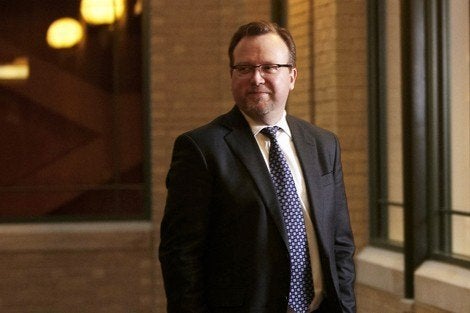[ Winter 2014 ]
Paul Biddinger, director, Emergency Preparedness and Response Exercise Program, Harvard School of Public Health
The world seems increasingly under the siege of public health emergencies: deadly new infections, catastrophic weather events, terrorism, industrial accidents. Do successful public health responses in one realm translate to other types of threats?
“Absolutely. In any disaster, the two main challenges for a public health or health care organization tend to be the same, irrespective of the threat. One is information flow or situational awareness. In a pandemic, the questions may be, ‘How many cases are there? What is the virus? How is it behaving? How can we best protect ourselves?’ In a mass-casualty event, the questions may be, ‘How many critically injured patients are there? Where are they? Are there any chemical hazards? Are there other security threats?’ In the chaos and stress of a disaster, you also have to be able to rapidly transform your organization from a day-to-day function to a fast, nimble, but still thoughtful operation.
In Boston, public health and hospital responders drew on the same overarching emergency operations plans for Hurricane Irene, Hurricane Sandy, the flu pandemic of 2009—and the Marathon bombings. But the reality of the world, of course, is that we can’t possibly be fully prepared for everything. We have to continually revise our plans and systems, based on the lessons we have learned. We also have to reassess potential threats. Some things are common—you have to be ready for flu, mass vaccination, mass dispensing. But uncommon things of extraordinary consequence—whether a Category 5 hurricane or a large-scale improvised explosive device (IED) attack—also can take a tremendous human toll. Today, we worry about emerging infectious diseases, large-scale information systems failures, the nefarious use of biologic or chemical or radiation weapons, IEDs, and the persistent threat of lone-wolf shooters. You prepare for threats that are a combination of very likely and very consequential, or that require special talents not otherwise available in your day-to-day operations.
We’re always faced with new threats, so we’re always changing our response plans and always trying to get better. I use the analogy of a football team: Just because you won a game, you can’t stop practicing.”
